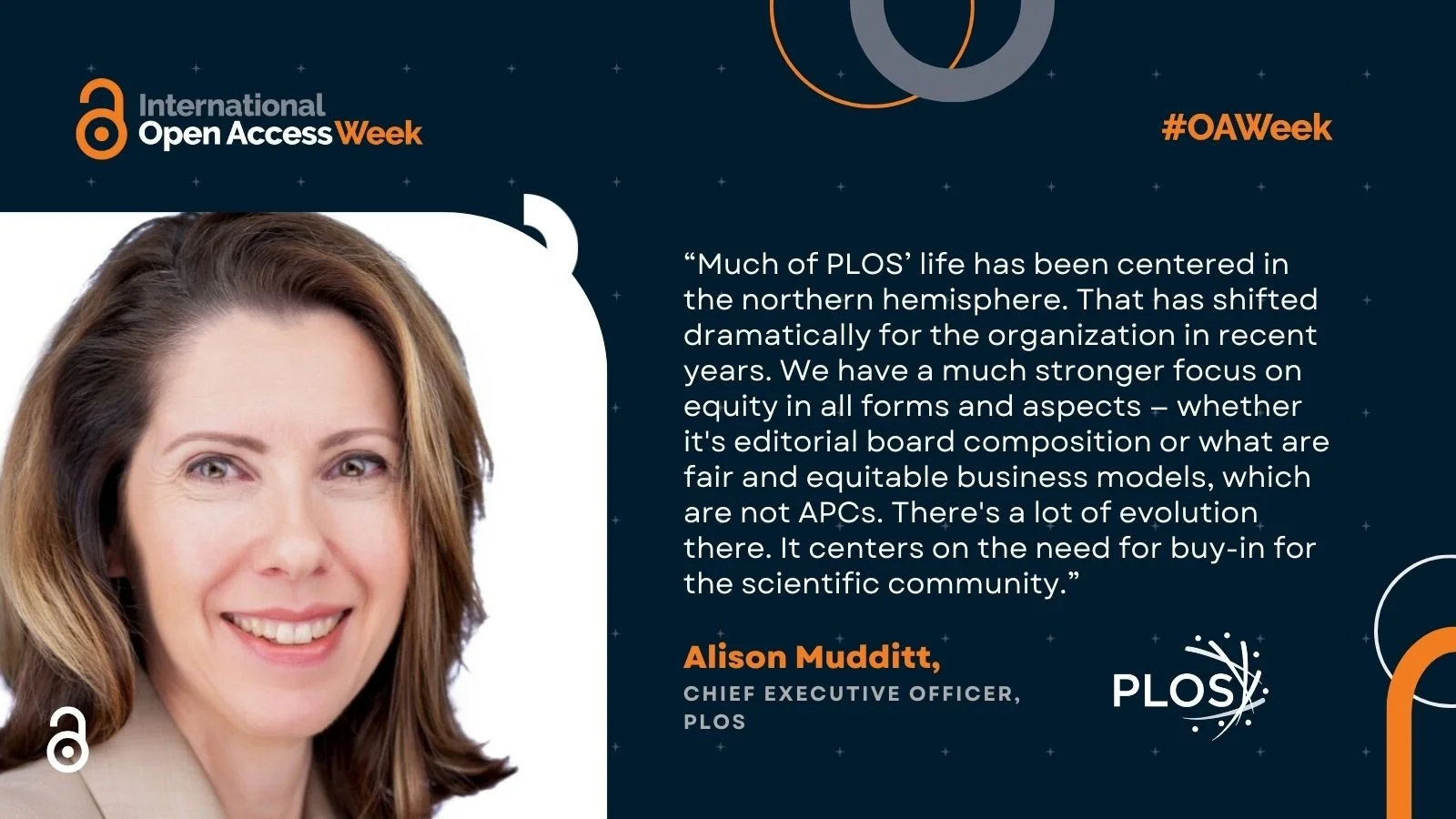PLOS
Background: PLOS is a nonprofit open access publisher founded by scientists for science. The idea for PLOS began with an open letter endorsed by nearly 34,000 researchers from 180 countries in 2000. Recognizing that most existing journals were resistant to changing their business practices, PLOS launched its first journal in 2003 to empower researchers to make research immediately and openly accessible, without restrictions.
Mission: PLOS was established to be a catalyst for change in scholarly communication. By reimagining publishing models and mechanisms for sharing research, facilitating broad participation of voices and collaborating to remove barriers to an inclusive foundation of knowledge, the ultimate goal is to advance equitable Open Science and lead a transformation in research communication.
Community over commercialization:
“Much of PLOS’ life has been centered in the northern hemisphere. That has shifted dramatically for the organization in recent years. We have a much stronger focus on equity in all forms and aspects — whether it's editorial board composition or what are fair and equitable business models, which are not APCs. There's a lot of evolution there. It centers on the need for buy-in for the scientific community.”
“PLOS was founded for and by the community. That’s woven right into the origins of the organization. The reasons for starting PLOS were about solving the problems that the scientific community had at the time of not having access to the research literature and the time it took to publish.”
“PLOS’s role going forward is focused on supporting the community and the broad sweep of open science — not simply access to research articles. It is also informed by much deeper connections with global communities.
“PLOS is a non-profit, we aren’t focused on a return to investors. That said, we operate as a business because that's the way we fund the cost of operations. It's also a way in which we drive money to invest it further in our mission. We have capped our return at no more than 10%.”
“When I think about the role that PLOS plays in the ecosystem, I think there's a consistency there in being a catalyst. We always have our eye on the next thing. Once we help solve a problem, we start pushing forward with more transformational change in the way in which research gets shared. Community is very much central to that. There's also some tension there if we're honest about it. “
“The vision we have of how scholarly communication should operate is not where the majority of researchers are right now…. a lot of the way we operate is trying to understand what the problems with the community are. Knowing what the frustrations are in the community and what doesn't work well for them in the current system is a really important part of informing the way in which we move forward.”
“Our core role really is as a catalyst. We are about PLOS succeeding as an organization and showing that it's possible to work in this way, be sustainable and publish high quality research. Our work in pushing towards new and different business models is starting to have an impact. We want to succeed in a way that enables other like-minded organizations to follow and to be part of that change. The goal here is to change the entire system, and not just to enable us. Consulting and working in partnership is absolutely critical for us to continue to be successful and to be able to deliver on both sides of the mission in that way.”
-Alison Muddit, chief executive officer, PLOS

